De Ruiter is one of the rose breeding companies in Ethiopia contributing enormously to the development of the flower industry in the country. 'Creating Flower Business' for the customers began with testing potential varieties at different altitudes to find varieties that suit the specific growing conditions best. Sweetheart roses are the most prominent flower variety produced in large volumes in the country. Therefore the focus has been mainly to find varieties that are high-yielding, disease & insect pest tolerant, and having a long vase life. In this regard, De Ruiter is well known for its proven retail segment varieties. Due to the increase in demand for intermediate and T-hybrid roses in Ethiopia, De Ruiter has presented its novelties and there are more in the pipeline.
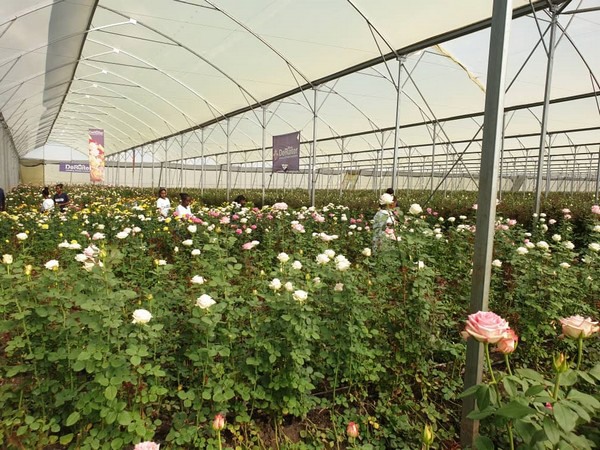 Trial house Debre Zeit
Trial house Debre Zeit
Of many newly released varieties in East Africa; Zanta, Born Free, Opala, Dream Girl, Epic White, Melange, Candor, Flanna, Daydreaming, Wannahave, Sunniva, Fluence, Pomarosa, and Trivia are some of the promising varieties suitable for all altitude ranges in Ethiopia. The demand for those varieties is increasing and is preferred by the growers due to the easy growing and unique characteristics of the varieties.
De Ruiter has two show houses at different locations and is planning to open two more trial houses in Bahir Dar and around the Menagesha – Holleta area. Bahir Dar is the new flower industry hub located in the northern part of the country. De Ruiter Ethiopia together with the breeding team is assessing new codes tirelessly to meet the demand of the customer for their market worldwide. Over 150 new codes and potential varieties are being tested yearly in different regions. Interesting codes, as well as potential varieties, will be commercialized and introduced to the grower via open days, trade fairs, and several exhibitions organized in Ethiopia, Kenya, and the Netherlands every year.
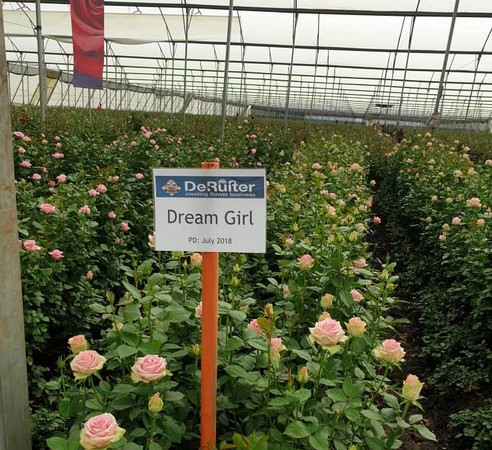 Variety Dream Girl® at Friendship farm
Variety Dream Girl® at Friendship farm
Ethiopian flower industry
The Ethiopian flower industry emerged in the late 1990s. In spite of being a late-comer, the industry has shown remarkable growth over the past years and has become the second-largest flower exporter in Africa. The diverse agroecology and favorable climatic conditions played a key role in the successful production of premium quality flowers in all altitude ranges. Furthermore, incentives from the federal government for agricultural investors as well as the Ethiopian Cargo facility contributed immensely to the development of the industry as a whole.
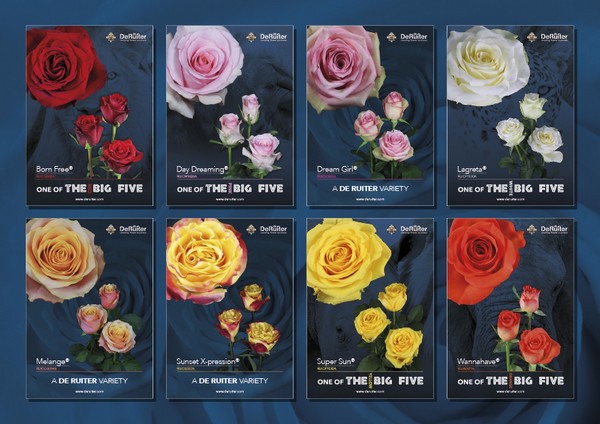
De Ruiter novelties in Ethiopia
It is reported that cut flowers ranked as the 5th major export commodity with 9.6% of the total exports of the country in 2019/2020. Considering Valentine’s Day sales only, the country earned 8 Million dollars from 2055 tons of exported flowers between 10th and 13th of February 2021. Considering the huge potential, the federal, as well as the regional, governments are reforming some policies to encourage foreign investment in the sector.
Regardless of the effort from the government, the sector is facing several challenges. Political disruption within, as well as outside, the country has created social unrest in the biggest flower-producing regions (Amhara and Oromia). Furthermore, an acute foreign currency shortage, sudden changes or devaluation of birr vs dollar, and high inflation rate are some of the major challenges for flower producers. Consequently, most investors are holding back their investment due to the current political situation. It is anticipated that after the election and disclosing of the election result in May, the situation will hopefully be stabilized and the business environment returns to normal.
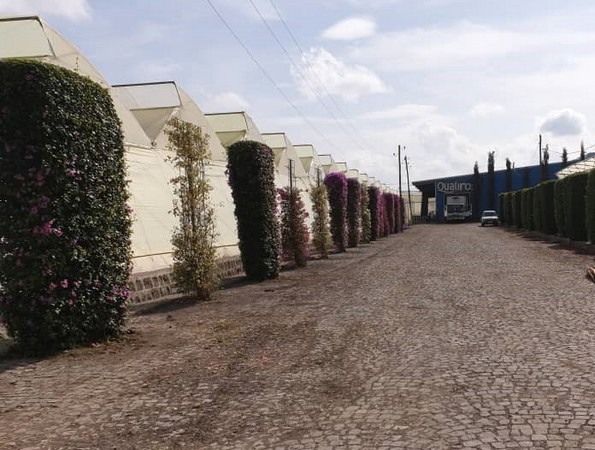 Showcase De Ruiter at Friendship
Showcase De Ruiter at Friendship
COVID-19 Impact
The Ethiopian flower industry was affected by the ongoing COVID-19 pandemic, mostly from the beginning of March until the end of April 2020. However, it must be mentioned that most rose growers did perform well in 2020, clock prices overall not much affected. Also, the retail market suppliers did see their product find a way to the final customers. The COVID crisis put pressure on flower prices especially from March – September 2020. Generally, flower sales were reduced during those months. Fortunately, the Ethiopian Airlines Cargo flight has been supporting the sector and most growers benefited from the shipment of available products to Europe.
Overall, the total area of rose flower production in Ethiopia remains almost similar or slightly less than the previous year. Hardly any new cut flower projects have been reported in 2020. The social unrest in the country and the COVID-19 pandemic have made investors cautious to put their capital in the sector. For instance, land acquired by local and foreign investors for new investment in the Bahir Dar (Kunzila) area is put on hold for now.
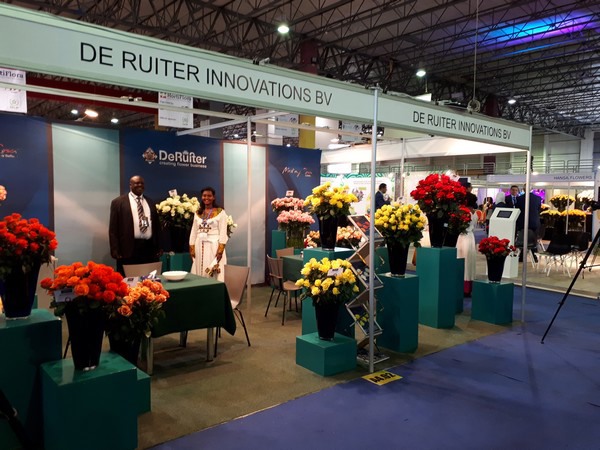 Stand De Ruiter at Hortiflora
Stand De Ruiter at Hortiflora
The prolonged cold weather during the night at the beginning of 2021 was a factor that decreased flower production in the country. Hence less flower volume was exported to Holland during Valentines and Women’s Day. Despite all the hurdles, flower prices were reasonably good, and so far, flower sales for Ethiopian growers are relatively encouraging.
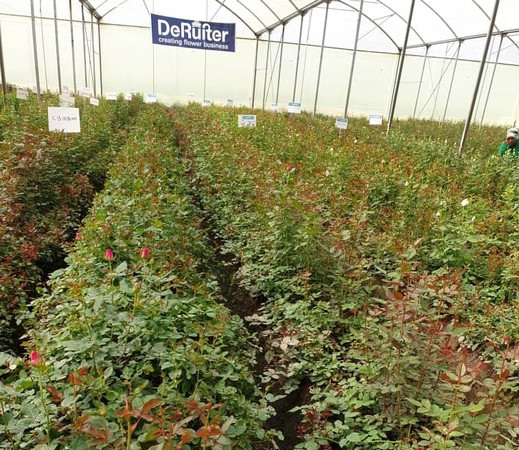 High production of Mysterious® in Ziway
High production of Mysterious® in Ziway
For more information:
Royal De Ruiter
www.deruiter.com
